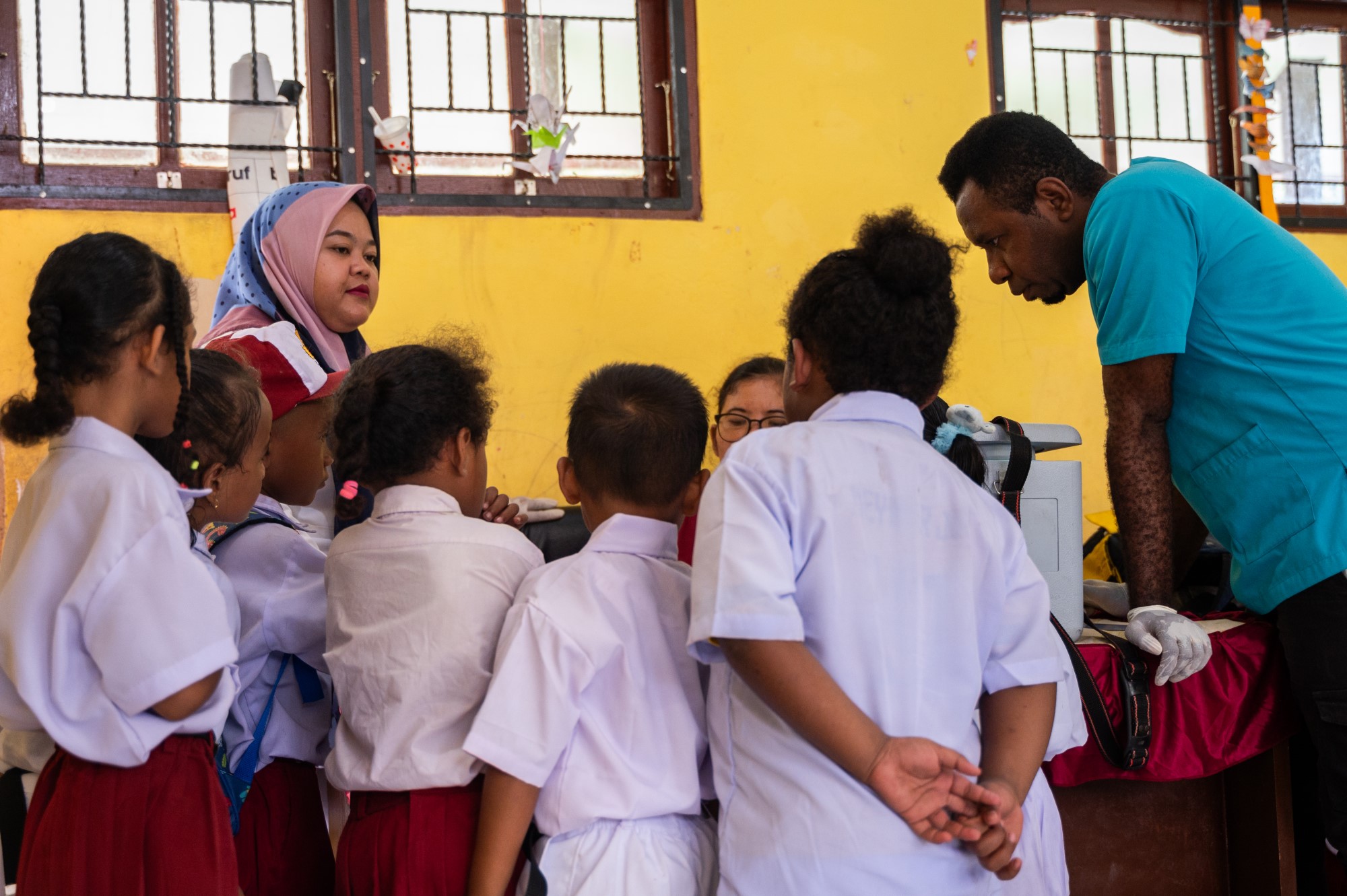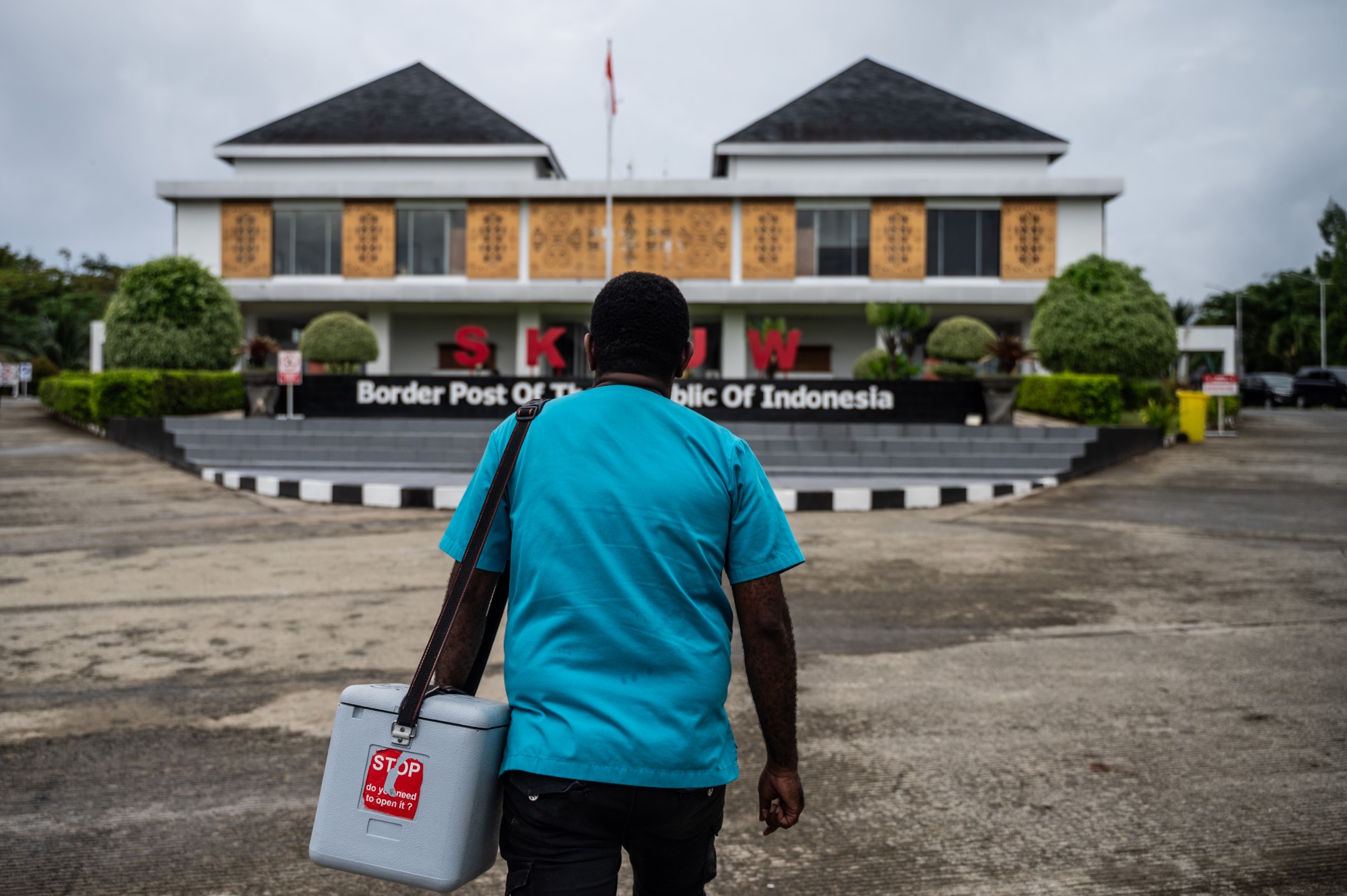In the bustling border town of Jayapura, Papua Province, Dr Samuel J. Kambuaya and his team at the Skouw Primary Health Care Center (Puskesmas) are making waves in the fight against polio. Their efforts not only protect Indonesian children but also extend a shield of immunity to those in neighbouring Papua New Guinea (PNG).
The urgency of their mission is clear. With complete polio vaccination rates in Papua Province as low as 44.42% in 2023, reaching the target of 95% coverage for children aged 0-7 years seemed daunting. Recent polio outbreaks in neighbouring provinces of Greater Papua have raised alarm in both Indonesia and PNG. With WHO’s assistance, Dr Samuel's team rose to the challenge, implementing innovative strategies that have had far-reaching impact.
“We used to wait for people to come to the Puskesmas,” Dr Samuel explains. “But many families struggle with transportation costs. Now, with WHO assistance, we actively go into the villages. Our vaccination coverage showed substantial growth afterward.”

Dr Samuel J. Kambuaya and Nurse Biuti Mawar Sari checked the students list as they prepared to administer the nOPV2 polio vaccine in Skouw village, Jayapura City, Papua, on 22 July 2024.
On 27 May 2024, only 46 children were vaccinated, which is 13% of the 347 children who should receive this protection from Puskesmas Skouw team in the first round of the 2024 polio campaign. Support from WHO helped enable the Puskesmas to vaccinate 442 children by the end of the campaign on 21 June 2024, well above the targeted coverage.
The team conducts its work in key areas around the Cross-Border Post (PLBN) Skouw RI-PNG. On average, 100 people pass through the border post daily, with numbers rising to approximately 1000 on Saturdays, when the nearby market is open for trade. These locations, where communities exist across national boundaries, have become central to the team's efforts.
"We realized that many families in our area have roots on both sides of the border," Dr Samuel says. "Children often cross back and forth with their parents. By vaccinating these mobile populations, we're not just protecting Indonesian children, but also creating a buffer of immunity that extends into PNG."
WHO's assistance has been crucial in enhancing the skills of healthcare workers to implement the polio campaign and address cross-border challenges. This has enabled Dr Samuel's team to vaccinate children who might have otherwise been overlooked.

Dr Samuel walks towards the border post of the Republic of Indonesia and Papua New Guinea in Skouw, Jayapura City, Papua. Credits: WHO/Rosa Panggabean
As the campaign continues, Dr Samuel remains committed to this broader vision of public health. "Every child we vaccinate here could prevent an outbreak there," he says, pointing towards the PNG border. "We're not just fighting polio in Indonesia; we're contributing to the global eradication effort."
His team stands ready to vaccinate children from PNG if they are present in the Skouw area, in alignment with National immunization guidelines. The guidelines stipulate that all children encountered during vaccination activities are eligible to receive immunization, regardless of their country of origin.
In this corner of the world, where borders are fluid and communities interconnected, Dr Samuel and his team are building a healthier future for children on both sides of the border, one vaccine at a time.
This activity is supported by the US Government through USAID.
Written by Olivi Silalahi, National Professional Officer of Routine Immunization, WHO Indonesia.
